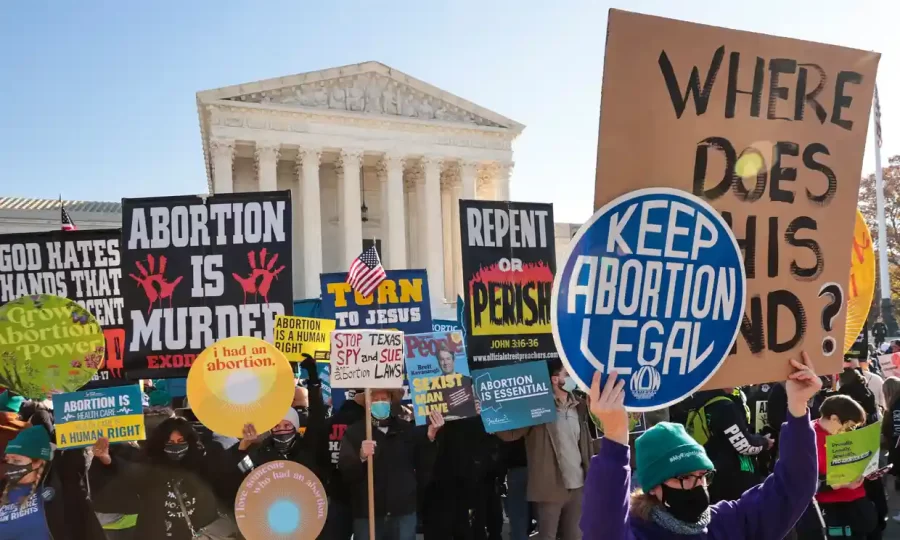Roe v. Wade In Danger
May 31, 2022
Roe v. Wade was a decision issued by the US Supreme Court in 1973 saying that the Constitution of the United States preserves a pregnant woman’s right to have an abortion without extreme government interference. Planned Parenthood v. Casey was another Supreme Court case in 1992 that made it so states are not allowed to ban abortion before 24 weeks of preganacy because limitations on abortion can place an unnecessary burden on women seeking abortion. Dobbs v. Jackson Women’s Health Organization is a current case at the Supreme Court, which questions whether or not any restrictions on pre-viable elective abortions should be allowed. This case has cited Mississippi’s ban on elective abortions past fifteen weeks of preganancy in order to make this argument. As the Supreme Court has been debating the Dobbs v. Jackson Women’s Health Organization case, some justices have taken this as an opportunity to revisit the previous two cases. Specifically, Justice Samuel Alito wrote an opinion calling for the overturning of Roe v. Wade and allowing states to make their own abortion laws, rather than the federal government. On May 2, this draft opinion was leaked to the public. Since this is currently just an opinion, it is not a law and the case has not been overturned, so the protections in place for women to get abortions still stand as of now.
States and citizens have had various reactions to this leaked opinion. Some people were very happy about Alito’s statement because they feel that abortion is wrong. On the other hand, many individuals were outraged by the possibility that this case could be overturned. These feelings led to thousands of people protesting in support of abortion rights. Similarly, many states have had drastically differing responses to this situation. Kentucky, Louisiana, Oklahoma, and South Dakota, already have legislation in place that would immediately ban abortion if the Supreme Court decides to overturn the case. There are other states with similar laws as well, like Texas, but it will take them longer to officially ban it. However, other states, such as Wisconsin, Michigan, and New Jersey, have said that they would protect abortions rights regardless of the Supreme Court’s decision. New Jersey’s governor, Phil Murphy, said that he wants to “assure every New Jerseyan that today’s news about the Supreme Court does not change access to abortion in our state. Access to reproductive health care remains available to anyone who needs it in New Jersey” (Murphy). The final Supreme Court decision is still unknown and will likely not be issued for another few months.

